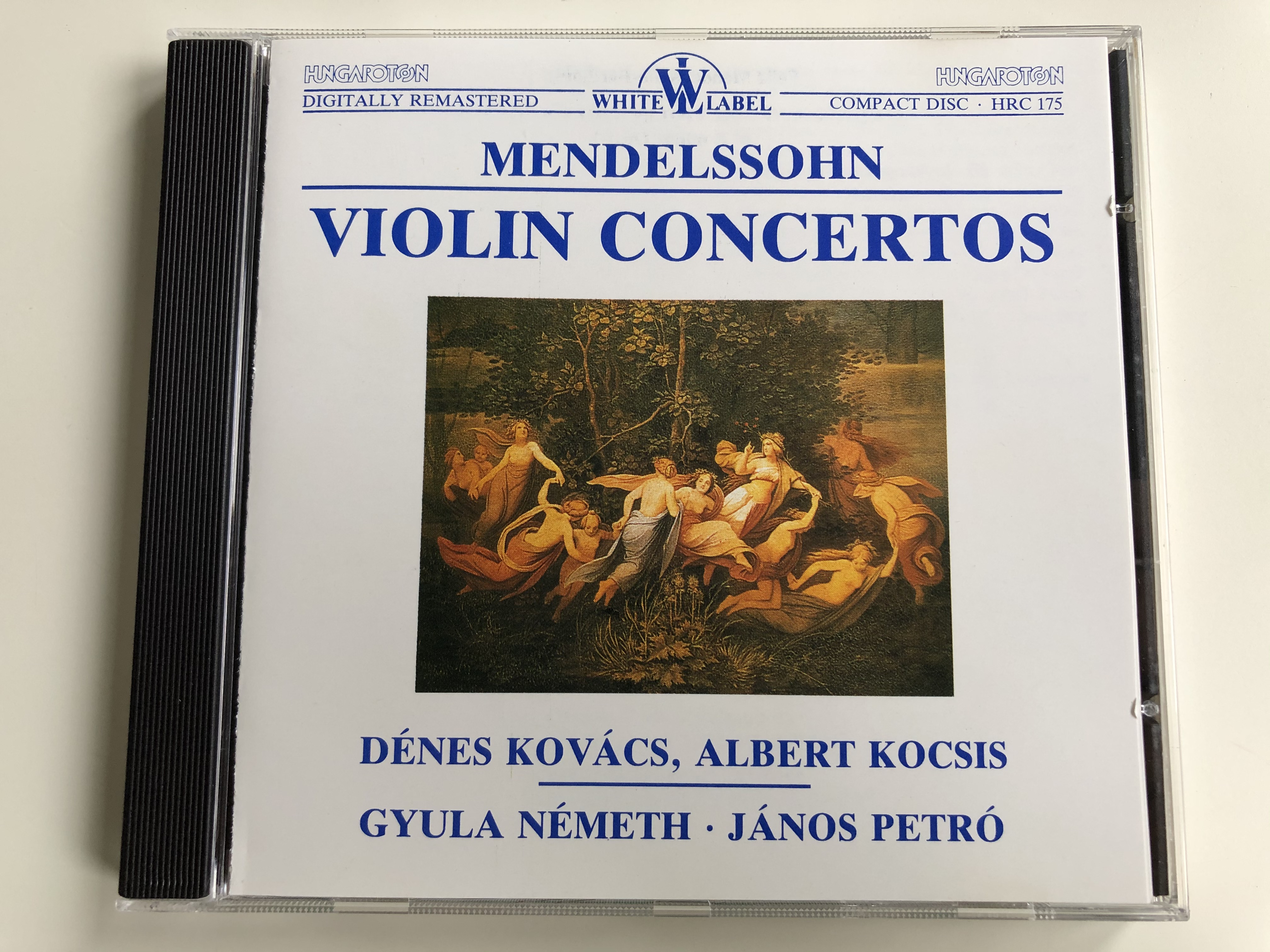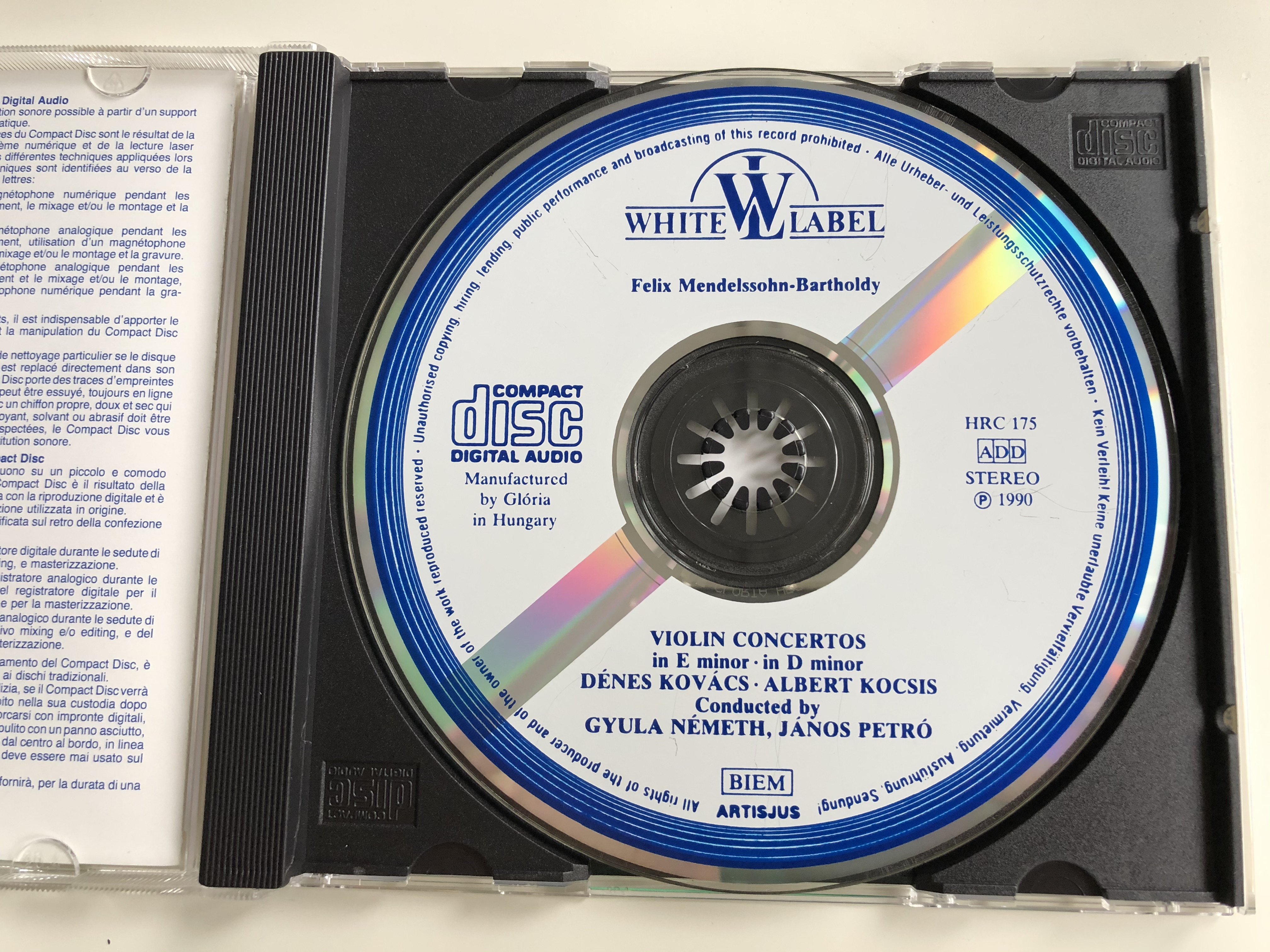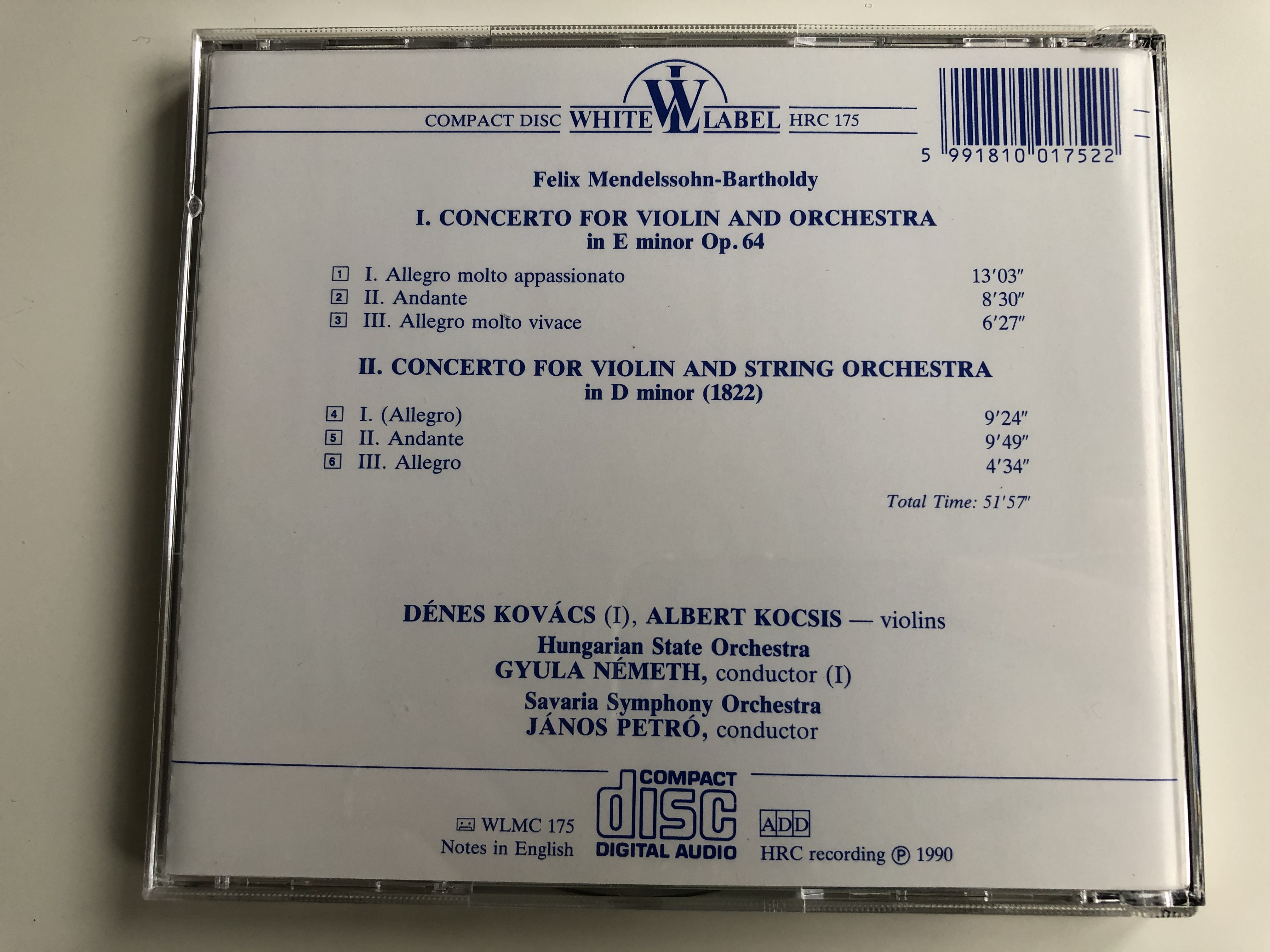Description
Mendelssohn - Violin Concertos / Denes Kovacs, Albert Kocsis, Gyula Nemeth, Janos Petro / Hungaroton Audio CD 1990 Stereo
HRC175
UPC 5991810017522
Total Playtime 51:57
Tracklist:
I. CONCERTO FOR VIOLIN AND ORCHESTRA in E minor Op. 64
[1] I. Allegro molto appassionato 13’03”
[2] II. Andante 8'30”
[3] III. Allegro molto vivace 6'27"
II. CONCERTO FOR VIOLIN AND STRING ORCHESTRA in D minor (1822)
[4] I. (Allegro) 9'94"
[5] II. Andante 9’49"
[6] III. Allegro 4'34”
- Violins - Denes Kovacs, Albert Kocsis
- Orchestra - Hungarian State Orchestra, Savaria Symphony Orchestra
- Conductor - Gyula Nemeth, Janos Petro
Jakob Ludwig Felix Mendelssohn Bartholdy (3 February 1809 – 4 November 1847), born and widely known as Felix Mendelssohn, was a German composer, pianist, organist and conductor of the early Romantic period. Mendelssohn's compositions include symphonies, concertos, piano music, organ music and chamber music. His best-known works include the overture and incidental music for A Midsummer Night's Dream, the Italian Symphony, the Scottish Symphony, the oratorio St. Paul, the oratorio Elijah, the overture The Hebrides, the mature Violin Concerto and the String Octet. The melody for the Christmas carol "Hark! The Herald Angels Sing" is also his. Mendelssohn's Songs Without Words are his most famous solo piano compositions.
A grandson of the philosopher Moses Mendelssohn, Felix Mendelssohn was born into a prominent Jewish family. He was brought up without religion until the age of seven, when he was baptised as a Reformed Christian. Felix was recognised early as a musical prodigy, but his parents were cautious and did not seek to capitalise on his talent.
Mendelssohn enjoyed early success in Germany, and revived interest in the music of Johann Sebastian Bach, notably with his performance of the St Matthew Passion in 1829. He became well received in his travels throughout Europe as a composer, conductor and soloist; his ten visits to Britain – during which many of his major works were premiered – form an important part of his adult career. His essentially conservative musical tastes set him apart from more adventurous musical contemporaries such as Franz Liszt, Richard Wagner, Charles-Valentin Alkan and Hector Berlioz. The Leipzig Conservatory, which he founded, became a bastion of this anti-radical outlook. After a long period of relative denigration due to changing musical tastes and antisemitism in the late 19th and early 20th centuries, his creative originality has been re-evaluated. He is now among the most popular composers of the Romantic era.






























